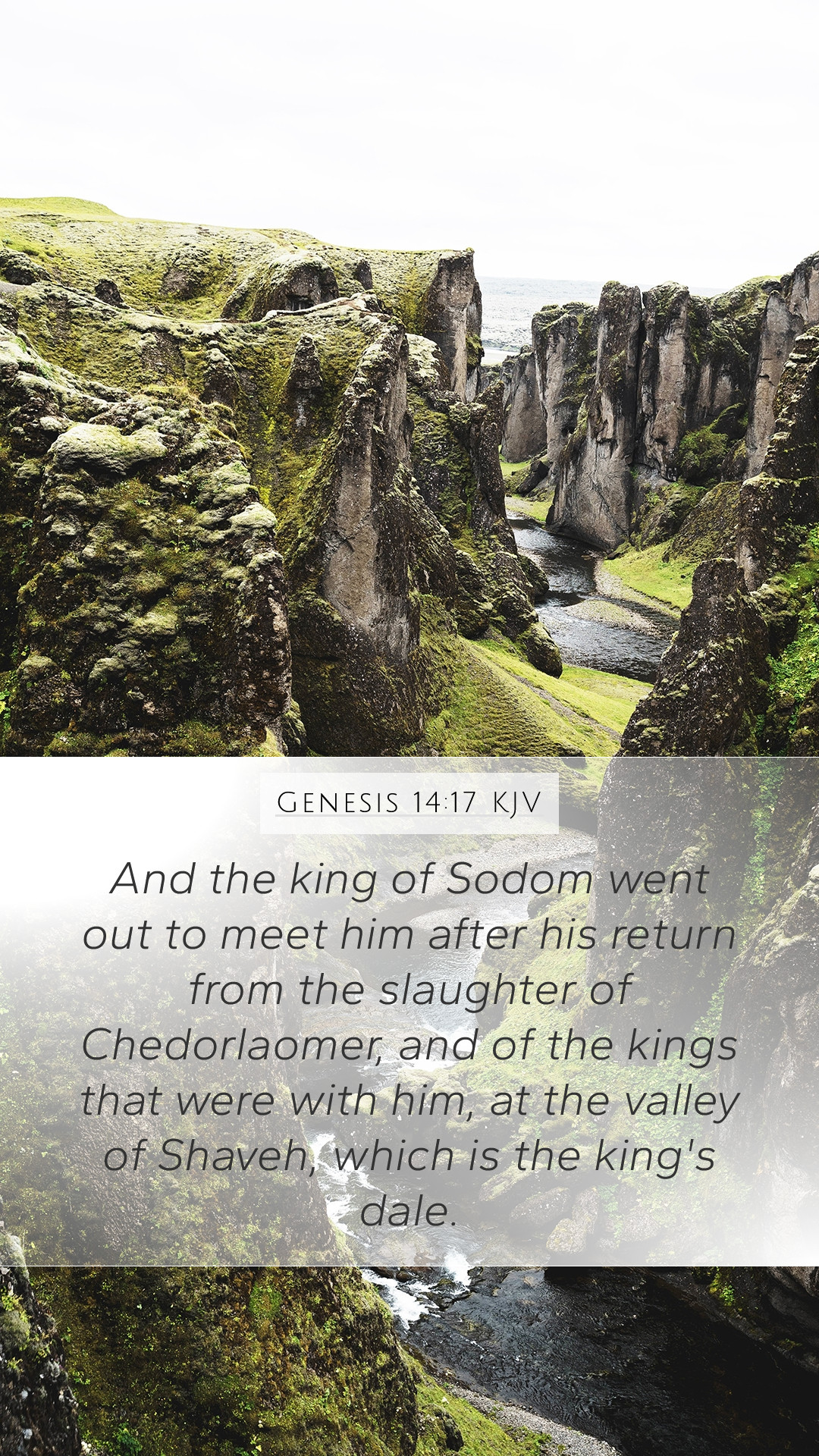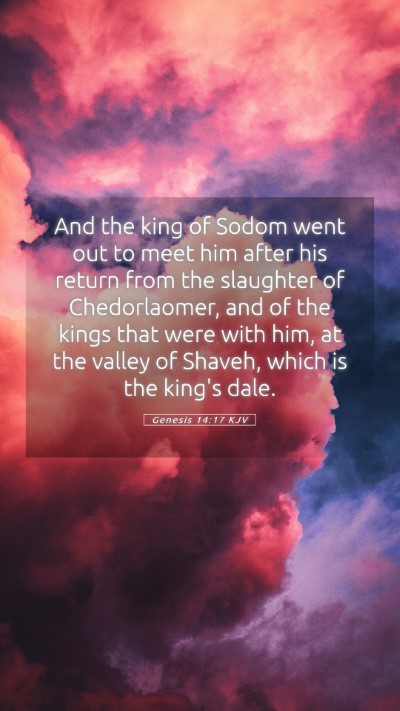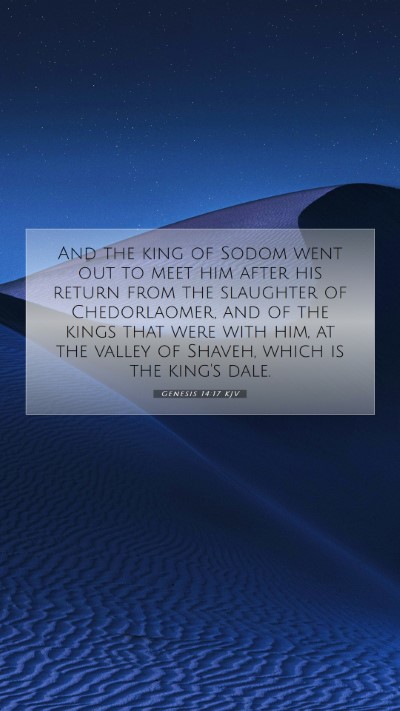Understanding Genesis 14:17
Genesis 14:17 states:
“And the king of Sodom went out to meet him after his return from the slaughter of Chedorlaomer and of the kings that were with him at the valley of Shaveh, which is the king'sdale.”
This verse describes the encounter between Abram (later known as Abraham) and the king of Sodom after Abram's victorious return from battle. The following analysis draws from prominent public domain commentaries to provide a deeper understanding of this passage.
Verse Context and Historical Significance
Matthew Henry emphasizes the historical context of this verse, noting that it captures a pivotal moment in the life of Abram. Following his successful military campaign against a coalition of kings, Abram stands as a significant figure, both politically and spiritually. It showcases Abram’s growth and emerging leadership among the tribes.
Albert Barnes provides additional insight into the valley of Shaveh, indicating its probable significance as a place of commerce and negotiation. This meeting sets the tone for Abram's future interactions with kings and influences his position in the region.
Biblical Exegesis
Adam Clarke's commentary focuses on the implications of this encounter. He notes that the “king's dale” symbolizes unity and allegiance among the local leaders, and Abram's presence speaks to his growing authority. Clarke posits that this meeting was not merely political; it holds moral and spiritual dimensions that highlight Abram's relationship with God and his righteousness.
Lessons and Interpretations
- The Nature of Leadership: Abram exemplifies strong, moral leadership in a time when tribal warfare was common. His victory over Chedorlaomer not only brings peace but also reveals his ability to unite and lead.
- Divine Providence: The successful return of Abram can also be seen as a sign of divine favor upon him, reinforcing the notion that God's presence and promise are with those who act in faith.
- High Stakes of Diplomacy: The encounter with the king of Sodom presents a moment of potential temptation when faced with the spoils of war. Here, readers can reflect on the moral choices that come with leadership and victory in life.
Application of the Verse
When applying Genesis 14:17 to daily life, individuals may consider the following:
- Recognizing the importance of moral integrity in leadership positions.
- Understanding the significance of one's choices, especially during times of success.
- Reflecting on the ways God’s guidance can influence one’s path in challenging circumstances.
Related Bible Cross References
- Genesis 12:2-3: God's promise to Abram and how this promise is an enduring theme throughout Abram's story.
- Hebrews 7:1-2: Discussion of Melchizedek, who also plays a significant role in this narrative.
- Genesis 13:14-17: Abram's continued expansion of faith as he enters into divine promises regarding the land.
Theological Insights
In theological discourse, this verse reveals early themes of faith, righteousness, and the relationship between God's people and secular authority. Matthew Henry notes that this interaction serves a greater purpose, preparing the way for God’s covenant with Abram. It showcases how God uses ordinary events and encounters to fulfill His promises and establish His kingdom on earth.
Conclusion
Genesis 14:17 encapsulates a moment of transformation for Abram. Through the wisdom evident in the commentaries of Henry, Barnes, and Clarke, one may glean the profound implications of this verse. Exploring its meaning fosters a deeper engagement with Scripture, enriching Bible verse understanding and allowing for practical applications in daily life.


